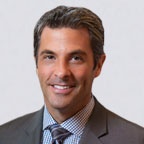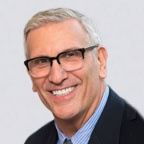Corporate Citizenship Career Path
- Thu Aug 25 13:36:51 UTC 2016
- Katherine V. Smith
The following is excerpted from Issue 17 of The Corporate Citizen. To learn more about how you can develop the strategies and skills that will prepare you to lead your teams and colleagues to a new level, consider applying for our Leadership Academy, which will be held on campus at Boston College November 13-17, 2017.
For more than six years, the Boston College Center for Corporate Citizenship has benefited from the guidance and expertise of its Executive Forum. This unique network brings together senior-level professionals from a wide range of industries to provide corporate citizenship leadership, inspiration, and knowledge, and influence the public discourse of the role of business in society. Here, a sampling of Forum members share their journeys to corporate citizenship leadership, as well as what they’ve learned along the way.

Executive Forum at the 2016 International Corporate Citizenship Conference
 Trisha Cunningham | @trisha117
Trisha Cunningham | @trisha117
Chief Citizenship Officer, Texas Instruments
How did you enter the field of corporate citizenship?
We began producing our annual citizenship report when I was managing global corporate communications—that was 10 years ago. I was also personally involved in our local community in leadership roles. I wanted to focus more of my efforts in these areas, so I worked to design a role as part of our public affairs team that incorporated leading our cross-company citizenship strategy, reporting, and stakeholder interface, along with direct responsibility for community programs that engage our employees while making our site communities stronger.
What is the biggest lesson you’ve learned in your career? The most important behavior or practice you employ to advance your corporate citizenship program?
Education. Education. Education. Don’t assume that everyone in your company understands the opportunities for advancing corporate citizenship along with the impact to stakeholders. It may not be part of their day-to-day role. Therefore, we educate cross-functional representatives from functional to executive levels so they can be well-versed in the citizenship implications to the business. Helping the right contacts in the company become aware of citizenship trends, stakeholder interests, reporting trends, and competitive assessment data helps us to make informed decisions on how we look at the opportunities ahead of us as they relate to our business success.
What advice would you give to those beginning their corporate citizenship career?
Relationships and business strategy connections matter if you want to gain support for your programs. It’s not just about doing what every other company does, but doing what matters to your business and key stakeholders.
 Jeff Bellows | @jbellows
Jeff Bellows | @jbellows
Vice President, Corporate Citizenship & Public Affairs
Blue Cross Blue Shield of Massachusetts
How did you enter the field of corporate citizenship?
Serendipitously. I was always drawn to being involved in the community, whether it was through my work early on in television news in Washington, D.C. or leading marketing and communication functions at several organizations thereafter. Still, I was very happy with my career path until I heard about the opportunity at my current employer, Blue Cross Blue Shield of Massachusetts. They were looking for someone who had communications experience, business acumen, an understanding of the nonprofit sector, and experience developing and implementing strategy. The stars aligned and I was hired! It’s been an incredibly rewarding experience and I feel lucky to do what I do each day, for a company that truly values community engagement and citizenship, not only as good to do, but as a strategic business imperative.
What is the biggest lesson you’ve learned in your career?
To listen to others, never be the smartest person in the room, enable people to do the best job possible, and know that you’re there for a reason and that you’re the right person for the job no matter the obstacles.
What is the most important behavior or practice you employ to advance your corporate citizenship program?
It is critical to bring diverse stakeholders together to share and learn from one another; local communities and experts can be a genesis of fresh ideas and innovation; and always be inspired by the vision and goals of the community.
What advice would you give to those beginning their corporate citizenship career?
Don’t be so focused that you can’t take advantage of opportunities that arise along the way and never be discouraged.
 John Spinnato | @JohnSpinnato
John Spinnato | @JohnSpinnato
VP, North America Corporate Social Responsibility, Sanofi US President, Sanofi Foundation for North America
How did you enter the field of corporate citizenship?
My prior role at Sanofi was as General Counsel for North America. I expressed interest in pursuing other opportunities and was tapped to head the then newly created North America CSR department based on my legal background, my involvement in our ethics and compliance programs, and my demonstrated interest and involvement in our charitable and volunteer efforts.
What is the biggest lesson you’ve learned in your career?
That there was not one path to achieving my goals, but many. I have learned to be resilient, and open to all options.
What is the most important behavior or practice you employ to advance your corporate citizenship program?
I have seized every opportunity to speak both internally and externally about our citizenship platforms and priorities, even if its value or scope seemed to be limited at the time. Demonstrating my commitment to the belief that corporations can be drivers of positive change at every level has been the key behavior to our success in building the CSR Department at Sanofi.
What advice would you give to those beginning their corporate citizenship career?
Again, it is what I learned early on—there is not one path to beginning your career in corporate citizenship. Keep your options open. Demonstrate your interest and get involved in your company’s initiatives, even if just as a volunteer. Pursue academic certifications if available, either at local universities or online, or any other source. Distinguish yourself by your activities and knowledge seeking.
 Nora Moreno Cargie | @NCargie
Nora Moreno Cargie | @NCargie
Vice President, Corporate Citizenship, Tufts Health Plan
President, Tufts Health Plan Foundation
How did you enter the field of corporate citizenship?
I was a grantee of the Boeing Company and was “head-hunted” when Anne Roosevelt was promoted to vice president of corporate citizenship, leaving an opening in the Chicago headquarters. It felt like a logical next step, from asking for resources to support the community to supporting communities with the largess of a great company like Boeing.
What is the biggest lesson you’ve learned in your career? The most important behavior or practice you employ to advance your corporate citizenship program?
We are cannot do this work alone—being collaborative and inclusive is essential for success; employing the concepts of shared value and collective impact are counterintuitive when everyone is trying to distinguish themselves and make their cases for differentiation.
What advice would you give to those beginning their corporate citizenship career?
Honor community and connect to your values. It makes coming to work so very rewarding.

Dan Bross | @danbross
Senior Director, Corporate Citizenship, Microsoft Corporation
How did you enter the field of corporate citizenship?
I was in the right place at the right time! With a background in government affairs and public policy, but also with 10 years of professional experience within the NGO community, I was given the opportunity back in 2002 to work with others across Microsoft globally to create our global CSR program.
What is the biggest lesson you’ve learned in your career? The most important behavior or practice you employ to advance your corporate citizenship program?
It is all about corporate culture and executive leadership. With it, the sky is the limit; without it, very little real, meaningful progress can be made.
What advice would you give to those beginning their corporate citizenship career?
Explore, take risks, and grow.
